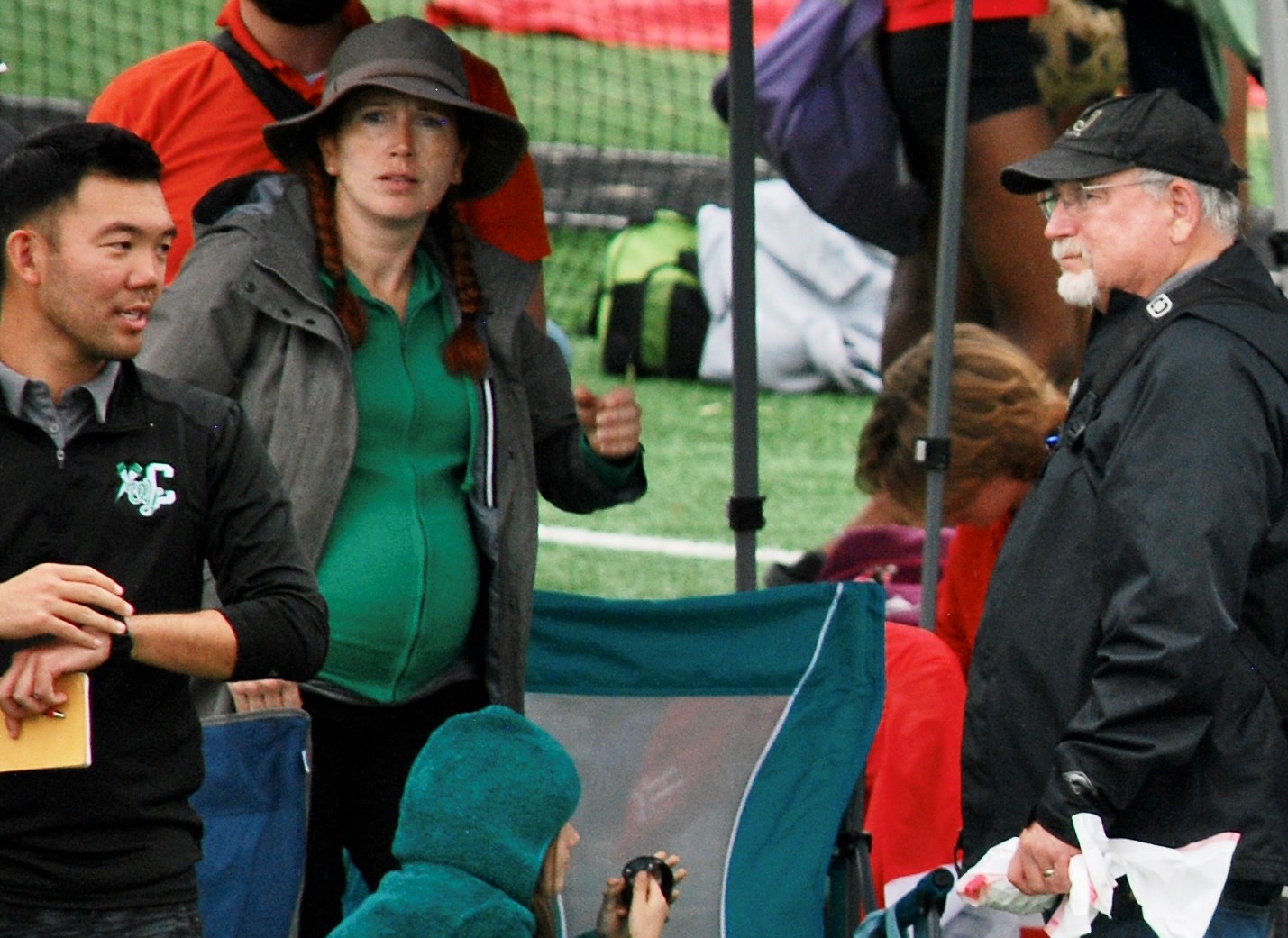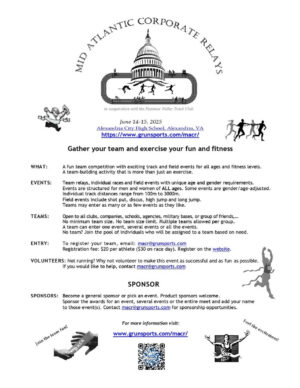It’s that time of year — when stuffy noses, sore throats and congestion abound. During cold and flu season it can be tempting to ignore symptoms to get in a run or a workout as spring race season approaches, but it begs the question: when is it OK to run when you have a cold, and when should you take a break?
It all boils down to how severe your symptoms are and how your body is feeling, said Dr. Glenn Wortmann, director of infectious diseases at MedStar Washington Hospital Center and an avid runner himself for about 20 years.
“Everybody is a little bit different, but if you’re so congested you’re having trouble breathing, then you should take the day off,” Wortmann said.
There’s some good news though: if cold symptoms such as a runny nose, sore throat, cough, congestion, slight body aches, headaches and sneezing aren’t too severe, it’s fine for runners to power through them to get a workout in, Wortmann said. Over the course of the winter, people may get the cold several times and if they feel up to it, they can run, he added.
The flu, however, can pack more severe symptoms that warrant a different response. The fever, cough, sore throat, stuffy nose, headaches, muscle and body aches that come with the flu may mean it’s best to take time off running, Wortmann said.
“You’re not going to get any benefit from [running with the flu]. Your body is telling you to rest and you may impair your recovery if you work out with influenza,” Wortmann said.
“If you have a fever, you really should not be running. Taking two-three days off is not going to impact your overall fitness and it’s best to let your body rest.”
Karen Kincer is the head coach of Montgomery County Road Runners Club’s Winter Half Marathon Program and has been with the club for more than 20 years. Working with athletes (particularly during cold and flu season) means she has seen many with those symptoms and she has to work with them to adjust their training based on how they feel. She said her best advice seems like the most obvious: listen to your body and take rest days when you need them.
“We get a lot of people who are in a training program, so a lot of people are newer to running and we are teaching people how to listen to their body and the signals it’s giving them. We talk a lot about recovery from injuries and the same goes for the cold or the flu,” said Kincer, who is a RRCA certified coach.
“When you lay out a [training] plan, people think they have to do everything on that plan, but you have to remind people that there is still life and they need to be flexible and make arrangements [if you’re sick]. We can still make this work.”
Dr. Wortmann says he has seen it before, too — the type-A D.C. area runners determined to follow their regimented training plans no matter how they’re feeling. But he implores those types of people to back off if they’re just not feeling well.
“Running tends to attract those types of personalities — I mean who else is going to want to go out and run in the cold and rain? And who else is going to try to push themselves when they’re not feeling well?,” he said. “… I think it’s important to realize that in the big picture that it’s better to recover and get back to training than trying to power through and run for a couple of days.”
Kincer recalled a time about two years ago when it was difficult to follow her own advice. She had pneumonia and had to remind herself to stop running, take care of her body and be patient as she recovered. As a coach, she was served a bit of her own medicine, too.
“You can look at anybody else and say, ‘It’s a bad idea, you don’t look good or sound right.’ But some of [the runners] had to say to me, ‘Yeah, I don’t think you should run today,'” she said.
So when a cold hits, what can a runner do to speed up the recovery process? Wortmann says symptoms can last about five days, and it’s important to stay hydrated from the onset. Water, juice or warm drinks can help loosen congestion while also preventing dehydration. Drinking plenty of fluids can also help you stay hydrated if you feel up to running.
As far as medications, over the counter cough and cold medications may help, but it’s best to just let the cold run its course, Dr. Wortmann said. He recommends medications like Tylenol to help with headaches brought on by the cold, too.
Kincer said runners can look to their wrists to help in the recovery process, too. Runners who have heart rate monitors on their watches can use the function to track if their heart rate is normal. If it’s more elevated than normal, it’s a sign that the body isn’t recovered or sick still, she said.
When cold or flu symptoms start to trail off, runners should still take it easy before hitting the road for a particularly long or strenuous run, Dr. Wortmann said. He suggests easing back into running and cutting runs short if you’re just not feeling it.
When runners don’t feel well, they can rethink how they exercise, Kincer said. It could be a good opportunity to take the time to do yoga, pilates, deep stretching and other methods of self-care. Runners can “use the training time in a different way that’s better on the body,” Kincer said. “And I think it helps mentally,” she added.
Then there’s every runners’ nightmare: waking up on race day with the cold or flu. If this happens to you, Wortmann said that, once again, it’s about listening to your body.
“If it’s the flu, you may not be able to run,” he said. “If just a cold you could probably go out and do the race — you may not do very well, but that’s up to the individual person to decide if they want to run or not.”
If those cold symptoms start a few days leading up to race day, Wortmann says runners should rest, take off a few days off and hydrate and maybe they’ll be ready on race day.
“A lot of these things are common sense things, and if you’re getting ready for a race or just going out for a run and you’re feeling awful then reconsider your plans.”
Recent Stories
Looking for our race calendar? Click here Submit races here or shop local for running gear
Hero Dogs 5K9
Hero Dogs Inc will host its 5th Annual 5K9 race at the Congressional Cemetery on Saturday, May 17th, beginning at 8 am. There will also be a 1K Fun Run. The 1K Fun Run will start at 8 am sharp
Mid Atlantic Corporate Relays
Team relays, individual races and field events with unique age and gender requirements. Events are structured for men and women of all ages.
Some events are gender/age graded. Individual track distances range from 100m to 3000m.
Field events include shot






